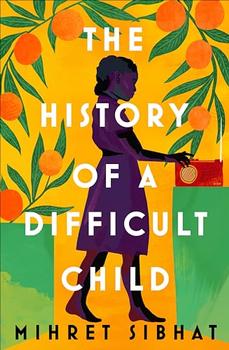Book Club Discussion Questions
In a book club? Subscribe to our Book Club Newsletter!
Please be aware that this discussion guide will contain spoilers!
- Do you think Selam is a "difficult child"? Why or why not? What makes someone "difficult," and how might the culture and environment in which you are born determine this?
- Why do you think nearly the entire book is told in Selam's voice? What perspective does a child narrator give the story, and what might be missing from that viewpoint? How might the story change if it were told by Degitu, Asmelash, or even the former servants?
- One day the Asmelashes are landowners, the next they've lost nearly everything and are ostracized by their community. For many residents of the Small Town, moral authority is determined by the governing regime. What do you think grounds the Asmelash's value system—politics, religion, family history, national identity, or something else? What about in your own life?
- Discuss some of the ideas about justice that come up in the novel. Do you think the novel ultimately reaches a conclusion about how to handle crime and punishment?
- How does Selam's relationship with her father develop over the course of the novel? Did your feelings about Asmelash change?
- There are a few chapters told from the perspective of other characters and collective voices. What effect did reading these chapters have on your sense of the world of the novel? Did they change how you saw the Asmelash family?
- Selam has a powerful realization when she sees the sign in Sheikh Abdullah's souk: if you want to borrow, come back tomorrow. How does this new awareness about the fragility of life apply to the political situation in Ethiopia? What do you think the novel is saying about the ties between mortality, mother, and country?
- The characters all have a distinct relationship with religion. What role does God play in Selam's life, and how does this role evolve as she grows up and is besieged by loss as well as political and religious oppression?
- Selam is born with an irrepressible zest for life, desire for, and fear of, freedom, and will to be her full self. Examine the tension between the pursuit of freedom and the fear of damnation throughout the novel. How do each of the characters try to assert their power and agency? When does Selam feel the most free?
- The History of a Difficult Child is a tragicomedy, brimming with as much heartbreak as irreverent, existential humor. How does Selam use humor to beat back the sadness of life? Does this resonate at all with your experience of processing grief, repression, and adversity?
Unless otherwise stated, this discussion guide is reprinted with the permission of Chatto & Windus.
Any page references refer to a USA edition of the book, usually the trade paperback version, and may vary in other editions.




